
Shreyashi Pathak Study Abroad Content Specialist
Study Abroad Content Specialist
Germany is strengthening its position as a global hub for postdoctoral research, offering cutting-edge facilities, diverse disciplines, and substantial funding opportunities for international scholars. With over €100 billion invested annually in research and development, it ranks as the 4th most innovative country globally (as per Global Innovation Index 2024), creating a dynamic environment for pioneering studies. Prestigious fellowships like the Humboldt Research Fellowship and DAAD Postdoctoral Fellowships provide monthly stipends ranging from €2,500 to €4,000 (₹2,20,000 to ₹3,50,000), along with travel allowances, research funding, and family support.
The following guide will help you explore postdoctoral opportunities in Germany and secure your path to academic excellence.
Explore: Study in Germany for International Students
Why Choose Germany for Your Postdoctoral Research?
Here’s why international students should consider Germany as the perfect destination for their postdoctoral research journey:
- Affordable or Free Education - Over 300 public universities in Germany offer free tuition, saving students €10,000–€30,000 annually compared to countries like the US or UK.
- Top-Ranked Universities - Germany boasts 48 globally ranked universities (QS World Rankings 2025) excelling in fields like engineering, medicine, business, and IT.
- Focus on Research and Innovation - With an annual investment of €100 billion in R&D, Germany ranks as the 4th most innovative country, offering students the chance to work on groundbreaking projects.
- Excellent Employment Prospects - Germany’s strong job market, with an unemployment rate of just 3.1% for individuals over 25, ensures promising career opportunities post-graduation.
- International and Multicultural Environment - Students from over 180 countries enrich the diverse and welcoming atmosphere at German universities.
- Wide Range of Scholarships - Scholarships like DAAD and Erasmus+ provide financial support, making education more accessible for international students.
- Practical Learning Approach - Internships and hands-on training integrated into courses prepare students for real-world challenges.
- Gateway to Europe - Studying in Germany allows access to 26 Schengen Zone countries, enhancing cultural and travel experiences.
- Safe and High Quality of Life - Germany’s safe cities, efficient public transport, andexcellent healthcare create a comfortable living environment.
- Learn in English or German - Many programs are taught in English, making it easy for international students to adapt while offering the opportunity to learn German as an added skill.
Top Universities Offering Postdoctoral Opportunities in Germany
The table below showcases top universities and fellowships offering some popular postdoctoral opportunities in Germany for international students:
| Fellowship Name | University/Institution | Eligibility | Benefits |
|---|---|---|---|
| Humboldt Research Fellowship | Alexander von Humboldt Foundation | Ph.D. completed within the last 4 years. International researchers from all disciplines. Proficiency in English or German. |
Monthly stipend of €2,670. Mobility allowance. Health and liability insurance contributions. Travel allowance. Language course for fellows and partners. Family allowances for accompanying members. |
| DAAD Postdoctoral Fellowships | German Academic Exchange Service | Ph.D. holders. Research proposal in line with DAAD's objectives. Proficiency in English or German. |
Monthly stipend. Travel expenses. Health insurance. Research cost allowance. |
| Max Planck Society Postdoctoral Fellowships | Max Planck Society | Ph.D. holders. Research proposal aligned with Max Planck Institutes' focus areas. Proficiency in English or German. |
Monthly stipend. Research cost allowance. Access to state-of-the-art research facilities. |
| ERCIM Alain Bensoussan Fellowship | European Research Consortium for Informatics and Mathematics (ERCIM) | Ph.D. holders. Research proposal in computer science, applied mathematics, or information technology. Proficiency in English. |
Monthly stipend. Travel allowance. Research cost allowance. |
| Fraunhofer-Bessel Research Award | Fraunhofer Society | Ph.D. holders. Outstanding academic record. Research proposal in applied sciences. |
Monthly stipend. Research cost allowance. Access to Fraunhofer Institutes' resources. |
| Heisenberg Programme | German Research Foundation (DFG) | Ph.D. holders. Established research career. Research proposal in line with DFG's objectives. |
Monthly stipend. Research cost allowance. Access to DFG's network and resources. |
| Volkswagen Foundation Lichtenberg Professorships | Volkswagen Foundation | Ph.D. holders. Established research career. Research proposal in humanities, cultural studies, or social sciences. |
Monthly stipend. Research cost allowance. Access to Volkswagen Foundation's network. |
| KWI International Fellowships | Institute for Advanced Study in the Humanities (KWI) | Ph.D. holders. Research proposal in humanities or social sciences. Proficiency in English or German. |
Monthly stipend of €4,000. Research cost allowance. Access to KWI's resources. |
Also Check: Top Medical Schools in Germany for Indian Students in 2025
Eligibility Criteria for Postdoctoral Fellowships in Germany
The table below outlines the key eligibility criteria for international students to secure postdoctoral fellowships in Germany:
| Eligibility Criteria | Details |
|---|---|
| Academic Qualifications | Doctoral Degree: Completion of a Ph.D. within the last 4 years. |
| Language Proficiency | English: Minimum IELTS score of 6.5 or TOEFL iBT score of 80. German: B2 level or above, required for research in German-speaking environments. |
| Research Proposal | A well-defined research proposal that aligns with the host institution's focus. |
| Host Institution Acceptance | Confirmation of supervision or invitation from a recognized German research institution. |
| Residency Restrictions | Applicants should not have resided in Germany for more than 15 months prior to the application deadline. |
| Age Limit | Some fellowships have age restrictions to be under 45 years old. |
| Work Experience | Relevant research experience may be advantageous but is not always mandatory. |
| Statement of Purpose (SOP) | A concise SOP (1–2 pages) explaining academic background, research objectives, motivation for choosing Germany, and expected outcomes of the fellowship. |
| Letters of Recommendation (LORs) | 1-2 recent LORs from academic referees (preferably the Ph.D. supervisor), providing an external evaluation of the applicant’s research potential and qualifications. |
Application Process: Step-by-Step Guide
The step-by-step guide below outlines the application process for international students seeking postdoctoral fellowships in Germany:
- Research programs – Look for postdoctoral fellowship programs like DAAD or Humboldt that match your research field.
- Contact a host institution – Find a German university or research institute and get an invitation from a professor willing to supervise your work.
- Write a research proposal – Prepare a clear research plan explaining your idea, goals, and how it will add value to your field.
- Gather documents – Collect your SOP, LORs, CV, degree certificates, and proof of language proficiency (IELTS, TOEFL, or German certificate).
- Submit your application – Apply online through the fellowship’s official portal by filling out forms and uploading the required documents.
- Wait for the result – The review process may take a few months, so keep in touch with your host institution for updates.
- Apply for a visa – Once selected, apply for a research visa at the nearest German consulate with your award letter and other documents.
- Prepare for your stay – Book your flight, arrange accommodation, and get health insurance before you move.
Also Check: Jobs in Germany
Tips for Writing a Strong Postdoctoral Fellowship Application
Listed below are some crucial tips for international students to craft a strong and impactful postdoctoral fellowship application:
- Understand the Fellowship – Research the program’s objectives and tailor your application to show how your project fits with their focus and goals.
- Reach Out to a Supervisor Early – Contact professors or researchers in your field at German institutions and discuss your project idea with them.
- Prepare a Clear Research Proposal – Outline your research goals, methods, and expected outcomes, ensuring the proposal is focused and realistic.
- Highlight Your Achievements – Showcase your academic achievements, research experience, and publications that demonstrate your expertise and potential.
- Craft a Strong SOP and Secure LORs – Write a convincing Statement of Purpose explaining your motivation and fit for the program, and request strong recommendation letters from your mentors.
- Proofread and Follow the Guidelines – Double-check your application for errors and ensure it meets all program requirements, including document format and word limits. Submit early to avoid last-minute stress.
International students should know that Germany offers an economical option for Postdoctoral Fellowships, drawing over 10,000 scholars globally each year. Students should avail themselves of the opportunity to advance in a nation celebrated for affordable, high-quality education.
FAQs
Ques: Are postdoctoral fellowships in Germany tax-free?
Ans: Yes, postdoctoral fellowships like DAAD and Humboldt Fellowships are generally tax-free under German law, but additional income from employment contracts may be taxable.
Ques: Can I bring my family while pursuing a postdoctoral fellowship in Germany?
Ans: Yes, many fellowships, like the Humboldt Research Fellowship, offer family allowances and support for accompanying spouses and children, including language courses and childcare subsidies.
Ques: Can I switch research topics during my postdoctoral fellowship?
Ans: Switching topics is usually not recommended, as fellowships are awarded based on your submitted research proposal. However, minor adjustments to your project may be discussed with your supervisor.
Ques: Are there postdoctoral fellowships in Germany specifically for STEM researchers?
Ans: Yes, fellowships like the Max Planck Society Postdoctoral Fellowships and Fraunhofer-Bessel Research Awards are tailored for STEM fields, offering access to cutting-edge facilities and industry collaborations.


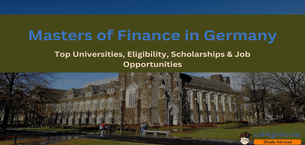


1720688571.png?tr=w-305,h-145,c-force?h=40&w=40&mode=stretch)







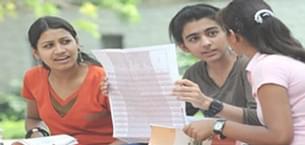
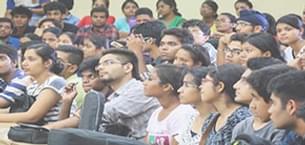
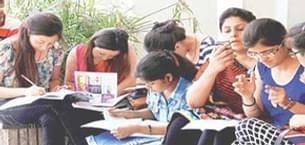
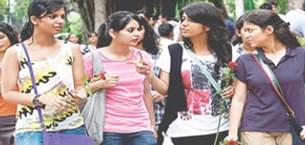
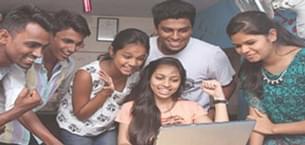





Comments